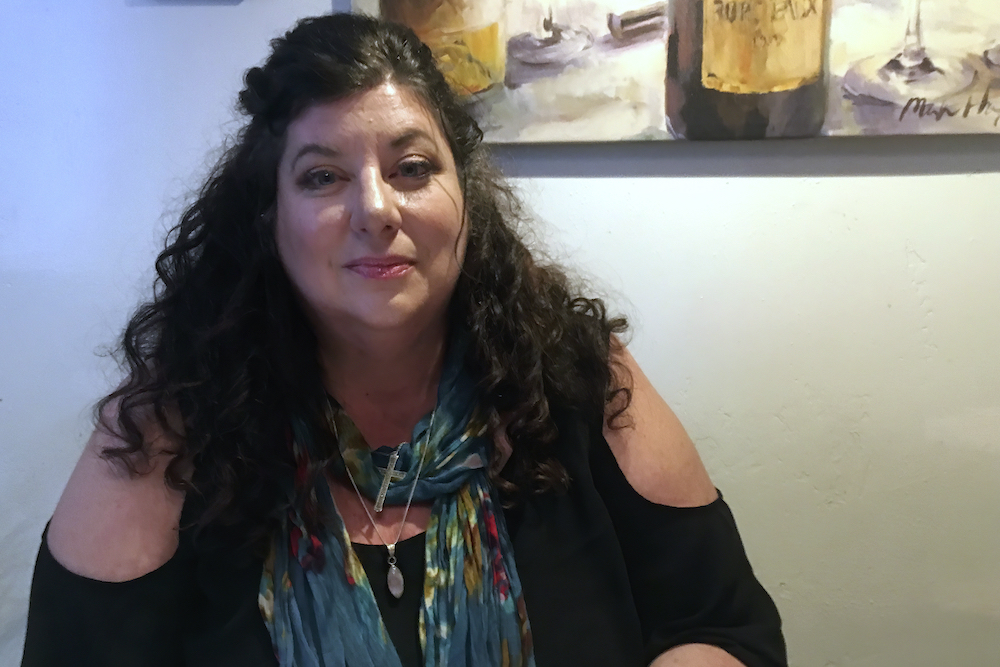The more I read about Tara Reade’s story, the less I know about her sexual assault allegation against Joe Biden. That’s a problem, not just for Reade but for every serious journalistic attempt to litigate decades-old alleged crimes that have no independent eyewitnesses and no hard evidence.
A growing number of media outlets have embraced trauma-informed reporting. It’s why we don’t dismiss an allegation because the accuser gets a few facts wrong, contradicts herself, can’t provide definitive details or didn’t report the crime. That’s as it should be.
We now know that each of those things may have resulted from how the brain processes memories during traumatic events. We now know that survivors can struggle for years coping in the aftermath of an attack. We’ve been able to tell better, more complex stories in ways that honor the dignity of the most vulnerable. It provides victims with a real alternative to a criminal justice system that has not always treated them well. They now have reason to believe journalists will hear them out despite the messiness of their stories.
But there is a disquiet. Despite our most dogged attempts, trauma-informed reporting often can’t answer the question at the heart of an allegation. Sometimes, it can create more confusion that clarity. It can’t always help us determine when to publish a story and when not to. Even the kinds of evidence we’ve come to rely upon – such as corroboration from family members or friends – are far from foolproof and can be used in nefarious ways.
Another woman recently accused Biden of something untoward, not sexual assault but something that could have been used as evidence of a pattern of inappropriate sexualized behavior. That story went nowhere because the Biden campaign proved Biden hadn’t attended the event where the act allegedly occurred. The most disquieting part of the story, though, wasn’t that it was trumpeted on Twitter by journalists at The Intercept and ABC News before it was debunked. It was that it included multiple people who said they had either witnessed the act or were told about it shortly thereafter – the kind of corroboration journalists have come to rely upon when vetting such stories.
Imagine if the Biden camp didn’t have documents and witnesses to prove it was impossible for him to have done what he had been accused of because he was not at the event. Imagine if Biden had attended the event but had not committed that act. Then the allegation would have become more fodder in what likely will be a contentious 2020 presidential election cycle—even though it was false, even though journalists would have been reporting it based on journalistic tools that have improved our ability to tell such stories.
On the Reade story, there’s no way to prove or disprove her primary allegation. While the changes Reade has made to her story, which didn’t include a claim of sexual assault until March, can’t prove she isn’t being truthful, neither can they be used to establish that she is.
Sometimes, contradictions and holes in stories suggest they are simply not accurate rather than evidence of a trauma-induced misremembering. The research on how to ascertain which is which — to determine if we should use the word “accuser” or “survivor” — is far from conclusive. Even those who have corroborated that Reade told them some version of her story several years ago have told various versions. It means we are left with trying to establish the credibility of the accuser, which takes us uncomfortably close to the bad old days of victims being put on trial for having come forward.
Stories by Vox.com, The Associated Press, PBS, and Politico have raised questions about Reade’s potential motive while not finding a pattern of sexual misconduct by Biden. None of that gets us closer to knowing if Biden, as Reade claimed, sexually assaulted her in a hallway somewhere near Biden’s Senate office. And we have no idea if there is evidence in Biden’s political documents at the University of Delaware; Biden denies personnel records are among the documents, but even if they were, Reade said she never filed a specific a complaint about sexual assault, just one about sexual harassment.
That leaves us with the worst of all worlds.
The presumptive Democratic nominee for president has been accused of something he has no way of disproving even as he has vigorously denied the charge and no one else has accused him of anything like it. Though Reade has held firm to her accusation, her life — faults and mistakes included — has been put under the public microscope, even though what’s been discovered sheds little light on whether her central accusation is true.
The public is left to sort it all out in an environment in which cries of political hypocrisy are prominent and the principles of the #MeToo movement are being weaponized against political opponents. Where does that leave victims, particularly those whose voices have gone unheard and may now decide to remain silent rather than be subjected to a process that can’t always provide clarity?
Before the Reade story, I felt comfortable about how journalists had begun tackling such claims. I’m less so today. Trauma-informed reporting should remain a bedrock. But reminding our readers about its limitations — and making it clear why we can’t answer the questions they most want and need answered — must also become a priority.
A growing number of media outlets have embraced trauma-informed reporting. It’s why we don’t dismiss an allegation because the accuser gets a few facts wrong, contradicts herself, can’t provide definitive details or didn’t report the crime. That’s as it should be.
We now know that each of those things may have resulted from how the brain processes memories during traumatic events. We now know that survivors can struggle for years coping in the aftermath of an attack. We’ve been able to tell better, more complex stories in ways that honor the dignity of the most vulnerable. It provides victims with a real alternative to a criminal justice system that has not always treated them well. They now have reason to believe journalists will hear them out despite the messiness of their stories.
But there is a disquiet. Despite our most dogged attempts, trauma-informed reporting often can’t answer the question at the heart of an allegation. Sometimes, it can create more confusion that clarity. It can’t always help us determine when to publish a story and when not to. Even the kinds of evidence we’ve come to rely upon – such as corroboration from family members or friends – are far from foolproof and can be used in nefarious ways.
Another woman recently accused Biden of something untoward, not sexual assault but something that could have been used as evidence of a pattern of inappropriate sexualized behavior. That story went nowhere because the Biden campaign proved Biden hadn’t attended the event where the act allegedly occurred. The most disquieting part of the story, though, wasn’t that it was trumpeted on Twitter by journalists at The Intercept and ABC News before it was debunked. It was that it included multiple people who said they had either witnessed the act or were told about it shortly thereafter – the kind of corroboration journalists have come to rely upon when vetting such stories.
Imagine if the Biden camp didn’t have documents and witnesses to prove it was impossible for him to have done what he had been accused of because he was not at the event. Imagine if Biden had attended the event but had not committed that act. Then the allegation would have become more fodder in what likely will be a contentious 2020 presidential election cycle—even though it was false, even though journalists would have been reporting it based on journalistic tools that have improved our ability to tell such stories.
On the Reade story, there’s no way to prove or disprove her primary allegation. While the changes Reade has made to her story, which didn’t include a claim of sexual assault until March, can’t prove she isn’t being truthful, neither can they be used to establish that she is.
Sometimes, contradictions and holes in stories suggest they are simply not accurate rather than evidence of a trauma-induced misremembering. The research on how to ascertain which is which — to determine if we should use the word “accuser” or “survivor” — is far from conclusive. Even those who have corroborated that Reade told them some version of her story several years ago have told various versions. It means we are left with trying to establish the credibility of the accuser, which takes us uncomfortably close to the bad old days of victims being put on trial for having come forward.
Stories by Vox.com, The Associated Press, PBS, and Politico have raised questions about Reade’s potential motive while not finding a pattern of sexual misconduct by Biden. None of that gets us closer to knowing if Biden, as Reade claimed, sexually assaulted her in a hallway somewhere near Biden’s Senate office. And we have no idea if there is evidence in Biden’s political documents at the University of Delaware; Biden denies personnel records are among the documents, but even if they were, Reade said she never filed a specific a complaint about sexual assault, just one about sexual harassment.
That leaves us with the worst of all worlds.
The presumptive Democratic nominee for president has been accused of something he has no way of disproving even as he has vigorously denied the charge and no one else has accused him of anything like it. Though Reade has held firm to her accusation, her life — faults and mistakes included — has been put under the public microscope, even though what’s been discovered sheds little light on whether her central accusation is true.
The public is left to sort it all out in an environment in which cries of political hypocrisy are prominent and the principles of the #MeToo movement are being weaponized against political opponents. Where does that leave victims, particularly those whose voices have gone unheard and may now decide to remain silent rather than be subjected to a process that can’t always provide clarity?
Before the Reade story, I felt comfortable about how journalists had begun tackling such claims. I’m less so today. Trauma-informed reporting should remain a bedrock. But reminding our readers about its limitations — and making it clear why we can’t answer the questions they most want and need answered — must also become a priority.



